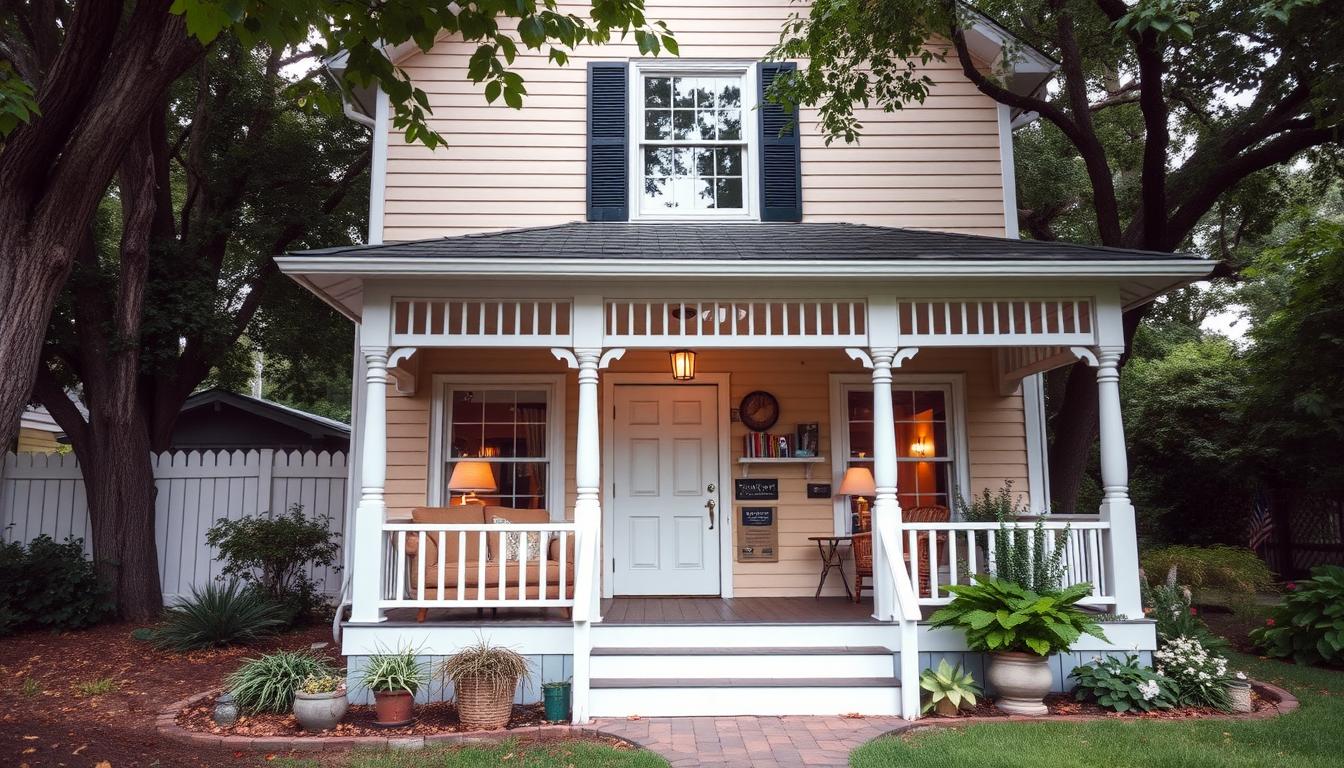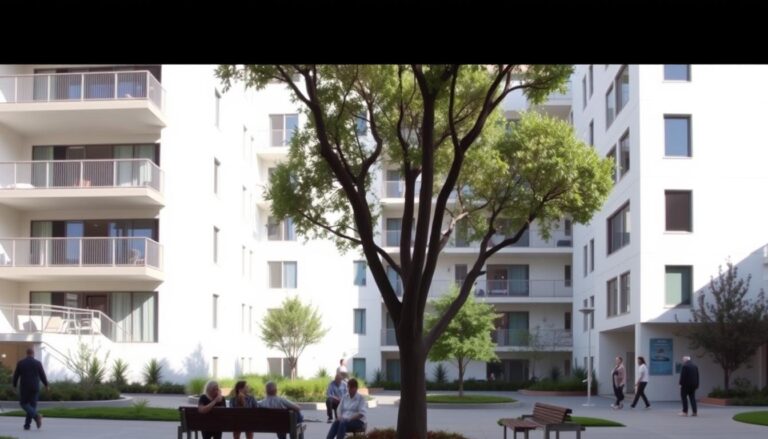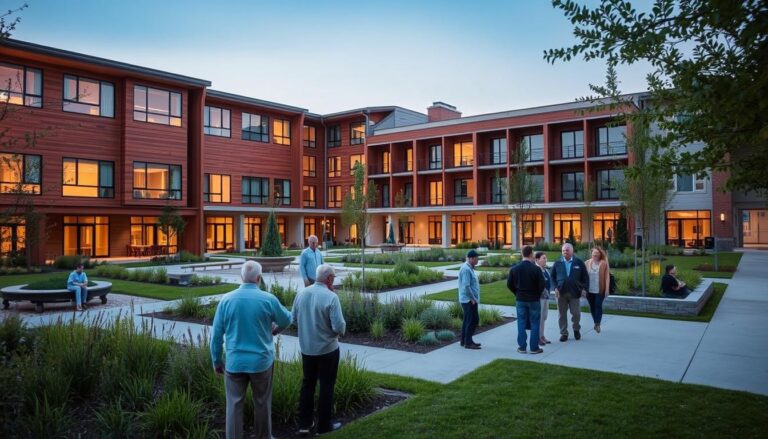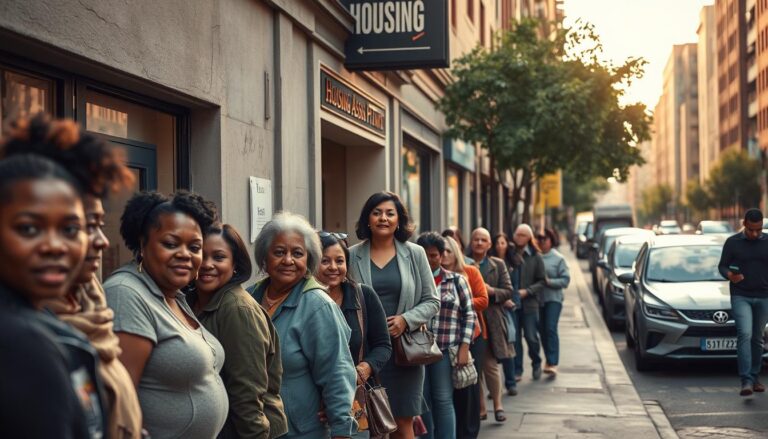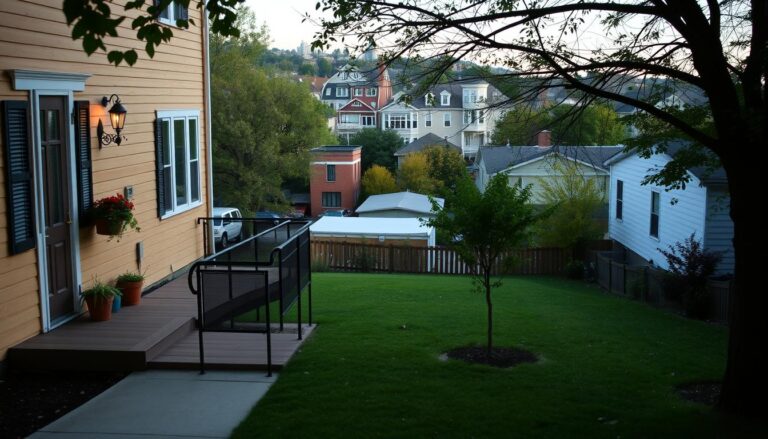Safe Housing for Homeless Pregnant Mothers
Many pregnant women in the U.S. are homeless, facing big challenges. Issues like domestic violence, lack of help, and few support options make things harder. Safe housing is critical for these mothers and their babies.
Programs such as Project Roomkey and the CalWORKs Housing Support Program are key. They help these mothers find and keep a safe place to live. This way, we help not just the mothers, but their families too.
Understanding the Challenge of Homelessness Among Pregnant Women
Pregnant women face many challenges, especially when they are homeless. In the US, lots of young women are in tough spots, leading to pregnancies they didn’t plan for. They often don’t have the support they need. Shockingly, homeless young women are almost five times more likely to become pregnant than women who have homes. This shows we really need to pay attention and help out.
A study looked at 26 pregnancies among homeless women and men. It found that of the 15 pregnancies that went to term, social services took 12 babies from their parents. This shows how serious things can get for homeless families. Pregnant women who are homeless face many problems. They often can’t get the prenatal care they need and deal with mental health issues and trauma, like being hurt by someone they trust.
These problems can make pregnant women very stressed and worried about where they’ll live. Many end up staying with friends or in shelters, and some even have to sleep outside. This makes it hard for them to get medical care, which is bad for them and their babies.
Some groups have it even harder when it comes to homelessness and pregnancy. For example, Black birthing people are twice as likely to be homeless as White ones. Homelessness among pregnant women shot up by 70% from 2016 to 2020 across the country. It’s really important we do something about this now. If we don’t, more mothers and their children will suffer because of homelessness.
The Importance of Safe Housing for Homeless Pregnant Mothers
Safe housing is very important. It is a basic human right. This is especially true for mothers and kids who don’t have a home. Pregnant women need a safe place to live more than anyone. It helps keep them and their babies healthy. When they have a stable place to live, moms can better take care of themselves and their unborn babies.
When homeless pregnant moms get housing, it lifts a huge financial weight off their shoulders. This allows them to spend their money on important things like doctor visits, good food, and education. Kids who grow up in a safe home do much better as they grow. They are healthier and do better in school.
Being homeless is about more than not having a place to live. It can make moms sleep poorly, feel more stressed, and get sick more easily. These problems can make pregnancy harder. They can lead to babies being born too early or too small. Research has shown that not having a home can increase the chances of newborns needing intensive care right after birth.
There are groups dedicated to helping these mothers and their babies. Maggie’s Place helps pregnant and parenting women in Arizona. Hope House Colorado helps teen moms with housing and care. House of Ruth gives support to moms in Washington, D.C. These programs show how important it is to help homeless pregnant women. They work hard to make sure these moms and their children are healthy and happy.
Types of Housing Options Available for Pregnant Women
Finding the right housing for pregnant women is very important. Their health and the health of their unborn babies depend on it. There are many housing options for homeless moms that meet different needs.
Maternity homes are very important. They offer a temporary place to stay. Many let moms stay longer after their baby is born. This helps them find a stable place to live. Places like Visitation House and Christina’s House provide good support. They help mothers become stable again.
Transitional housing is another good choice. It helps women move from emergency shelters to a permanent home. This housing offers safety while women aim for goals like getting a job or education. Groups like the Salvation Army and Catholic Charities help with this. They provide extra support services too.
Emergency shelters offer quick help for women who suddenly become homeless. These shelters have limits on how long you can stay. Yet, they are crucial in emergency situations. The Department of Housing and Urban Development (HUD) helps by offering vouchers. The Section 8 Housing Program helps families with low income with rent.
It’s best to apply early for public housing due to long waitlists. The CHAMP program in Massachusetts is great. It lets you choose housing in the area you like. This makes it a smart choice.
Knowing about housing options helps moms make good choices. Programs like WIC provide food support. This helps keep pregnant women healthy. It’s also important to be careful of bad agencies and human trafficking. Always check resources carefully when looking for help.
Homeless Pregnant Women Shelters: A Lifeline During Crisis
Finding shelter when you’re pregnant and homeless is tough. In the U.S., about 30% of homeless women are pregnant while seeking help. This points to the critical role of shelters for pregnant women in crisis.
Shelters do more than offer a place to sleep. They provide counseling, case management, and prenatal care. Programs for pregnant women help improve health for mothers and babies. Studies show that access to these shelters lowers health risks by 40%. Women often stay for about four months, getting help suited to their needs.
Organizations like The Salvation Army lead in this support. The Austin Women’s Shelter, since 2001, helps women escape homelessness and domestic violence. It has 81 beds. Their programs, lasting up to two years, help women build stable lives. They also offer job help, childcare, and legal assistance.
These shelters help mothers focus on their and their children’s health amidst homelessness. They provide a nurturing environment for mental and spiritual growth. Many women, 70% in fact, seek mental health services, provided by these shelters.
In short, shelters for pregnant homeless women are vital. They not only give shelter but also lead to stability and resilience. With a 60% success rate in securing stable housing post-pregnancy, these programs show the power of community support.
Maternity Housing Assistance for Homeless: Finding the Right Program
Finding help with maternity housing for the homeless can be tough. Many programs are out there for pregnant women and families without a home. These groups work with public housing to help people find a stable place to live. Their help ranges from emergency shelters to long-term homes.
The CalWORKs Homeless Assistance Program is a great choice. It offers temporary shelter for up to 16 days every year. For families of four or fewer, it covers hotel costs of $85 per day. If the family is bigger, the cost is higher, but it won’t go over $145 a day. It also helps families with the deposit and up to two months of overdue rent to stop eviction.
To join these programs, you must meet certain requirements. For CalWORKs, you need to be getting benefits or likely to get them and be homeless or close to it. Filling out the CW-42 form is the first step, which you can get from county offices.
Places like Home Start have helped over 265 families find housing. This is crucial in cities like San Diego, where a small apartment costs $1,413 a month. This is a big challenge for single moms taking care of their kids.
Programs for young adults, like the FYSB, allow stays for up to 18 months for 18-21-year-olds. The CalOES XH and Traditional Housing Program+ help with housing for up to 24 months. The Maternity Housing Program specifically supports pregnant women and moms with kids since 2009, focusing on affordability and support.
For young people, the Housing Our Youth (HOY) program and YHDP Joint Project offer housing and help with managing their lives. They need to pay some of their income for housing, which teaches responsibility while providing the help they need.
If you’re looking for maternity housing programs, you should reach out to local help and outreach programs. They can guide you to the right resources for housing, basic needs, and emergency help. Knowing what’s out there and how to qualify can help you find a stable place to live at this important time.
Resources for Homeless Pregnant Women
It’s really important for homeless pregnant women to find the right help. The Emergency Housing Voucher program offers immediate help for shelter. This aid isn’t just for housing. It also connects women to health services and chances to learn more.
Local health services sometimes give free or low-cost care for pregnant women without homes. Programs like Medicaid and CHIP ensure these women get the medical attention they need, such as prenatal visits. Also, non-profit clinics in many cities help fill the gap for those who need care quickly.
Calling hotlines like 211 is very helpful in finding support resources for pregnant women nearby. They can guide you on getting a place to stay, finding shelters, and getting into programs like WIC, which helps with nutrition when you’re pregnant. Even though getting good prenatal care can be tough, these programs make it easier and safer.
There are many kinds of help available, from emergency shelters to places you can stay for a while. These resources aim to help you move from having no home to being stable. A place called Jelani House is special because it offers constant support to homeless women who are pregnant or just had their baby.
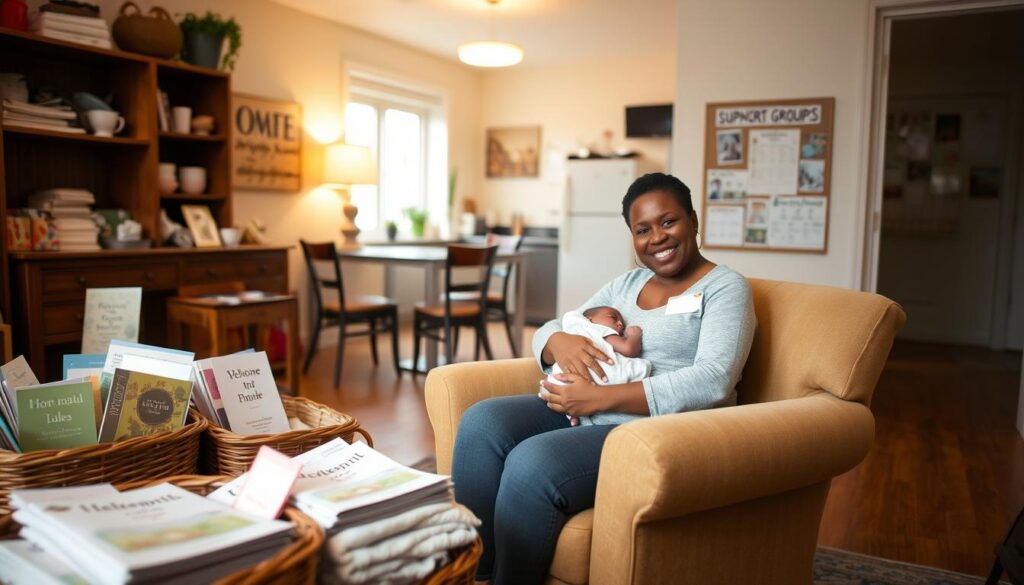
Local libraries often have job programs that include free training and help with childcare. This can make it easier for women to look for work. The HPP program helps more than 3,500 families every year with different kinds of support, like managing emergencies, food, clothes, and a place to stay. They even help cover the cost of moving into a new home and short-term rent help.
All these resources work together to support homeless pregnant women. Knowing and using this network can make dealing with housing and healthcare during pregnancy a lot easier.
Support for Pregnant Homeless Individuals: What You Need to Know
Help for pregnant homeless women is very important. It helps with their specific needs. About 30% of homeless women seeking shelter are pregnant. This shows the high need for help for these mothers. There are many services available. These include shelters, counseling, and classes for pregnant women in need.
Community groups and non-profits are key in giving this support. They make sure pregnant homeless women can get to health care. Being homeless and pregnant brings more health risks, like pregnancy complications. A strong support network can make things better for both the moms and their babies. It helps them face the struggles of not having a home and getting health care.
There are laws that help pregnant homeless women find a place to live. This is to help them stay healthy. You can call 211 to find programs that help with housing and health care. This is a big help in finding the right support.
Getting the right housing can cut down on feeling very sad after having a baby. It shows how important it is to take care of your mind and your health while pregnant. Help lines like the National Domestic Violence Hotline and the 988 Suicide & Crisis Lifeline are there too. They help with feeling safe and mental health.
How to Access Emergency Housing Vouchers
Emergency Housing Vouchers (EHVs) help pregnant women without homes or at risk. These vouchers are for those homeless, nearly homeless, escaping domestic violence, or unstable after being homeless. Knowing how to get and use these vouchers is key.
The first thing to do is see if you qualify. You need to be homeless, almost homeless, leaving domestic violence, or recently unstable. You also need to show proof. This can be through things others have seen, your own words, or documents. You might need to show you don’t have enough resources.
Groups called Continuums of Care (CoCs) can help you get EHVs faster by using Rapid Rehousing. But, Public Housing Authorities (PHAs) only take people from CoCs or their partners. Getting in touch with your local CoC could help a lot. If you’re waiting for a Housing Choice Voucher, they should tell you about EHVs too.
Those who want EHVs must fit certain income rules based on their family size. Young people 18-24 and families who really need help can get EHVs. It’s really important that LGBTQ+ people get help too, because they often face extra housing challenges.
You might have to call the Homelessness Prevention Hotline at (215) 686-7177 for help. If it’s busy, you’ll need to be patient for a reply. If you’re looking for emergency rent help, applying online at PHL Rent Assist or calling 215-320-7880 can support your housing needs.
By using these services, pregnant women can find stable homes. This makes life better and helps with well-being. Knowing how to get emergency housing vouchers lets you work towards a safe and stable future.
Community Support Programs for Homeless Pregnant Mothers
Community support programs are crucial for homeless pregnant mothers. Organizations like Sheltering Grace Ministry are key. They offer special services for pregnant women over 21 in Cobb County, Georgia. They tackle their problems with a detailed plan focusing on health, feelings, and money issues.
These women get housing, personal items, and help to overcome barriers to a stable life. The House of Dawn helps young mothers aged 18-21, too. It gives them access to education and housing for families making 60-120% of the Area Median Income (AMI).
These programs help mothers get better jobs and education, making their families stronger. They offer workshops and financial help. This empowers mothers to make a better future for their kids and themselves.
Women in these programs get the tools they need to set and reach big goals. These efforts do more than meet immediate needs like housing and baby items. They also build independence and strength.
By being part of these programs, homeless pregnant mothers gain more than a place to stay. They find a community that supports their journey to a safer, brighter future.
FAQ
What are the common causes of homelessness among pregnant women?
Homelessness in pregnant women often comes from domestic violence, lack of support, drug problems, and mental health struggles. These issues make it hard to find and keep a safe place to live.
Why is safe housing critical for homeless pregnant mothers?
Safe places to live are key. They make sure mothers get to doctors and eat well, protecting them and their babies from health problems during pregnancy.
What housing options are available for pregnant women experiencing homelessness?
Pregnant women without homes might stay in places like maternity homes, transitional housing, or shelters. These spots often also offer care before the baby comes and help finding jobs.
How do homeless shelters support pregnant women?
Shelters are a safe spot that offer important help. They have counseling, help managing their situation, and care for pregnancy and mental health. This makes sure pregnant ladies get the care they really need.
What maternity housing assistance programs are available for homeless women?
There are help programs that offer housing money and services just for expecting ladies. Groups work with housing authorities to guide women through applying and understanding if they can get help.
What resources can homeless pregnant women access?
Homeless pregnant women can look into the Emergency Housing Voucher program, local medical services, and the 211 hotline. These help connect them to important housing aids and supports during pregnancy.
What kind of support systems exist for pregnant homeless individuals?
There are community groups and charities offering advice, classes before and after birth, and help. By working with special groups for moms, pregnant ladies can find the help they and their babies need.
How can I access Emergency Housing Vouchers (EHVs) as a pregnant woman?
To get EHVs, start with your local Public Housing Authority. Knowing what’s needed and how to use these aids can really help improve where you live.
What community programs support homeless pregnant mothers?
Many programs and charities give ongoing support, like help with food, mental health care, and learning sessions. This helps homeless expecting women feel strong and included.
